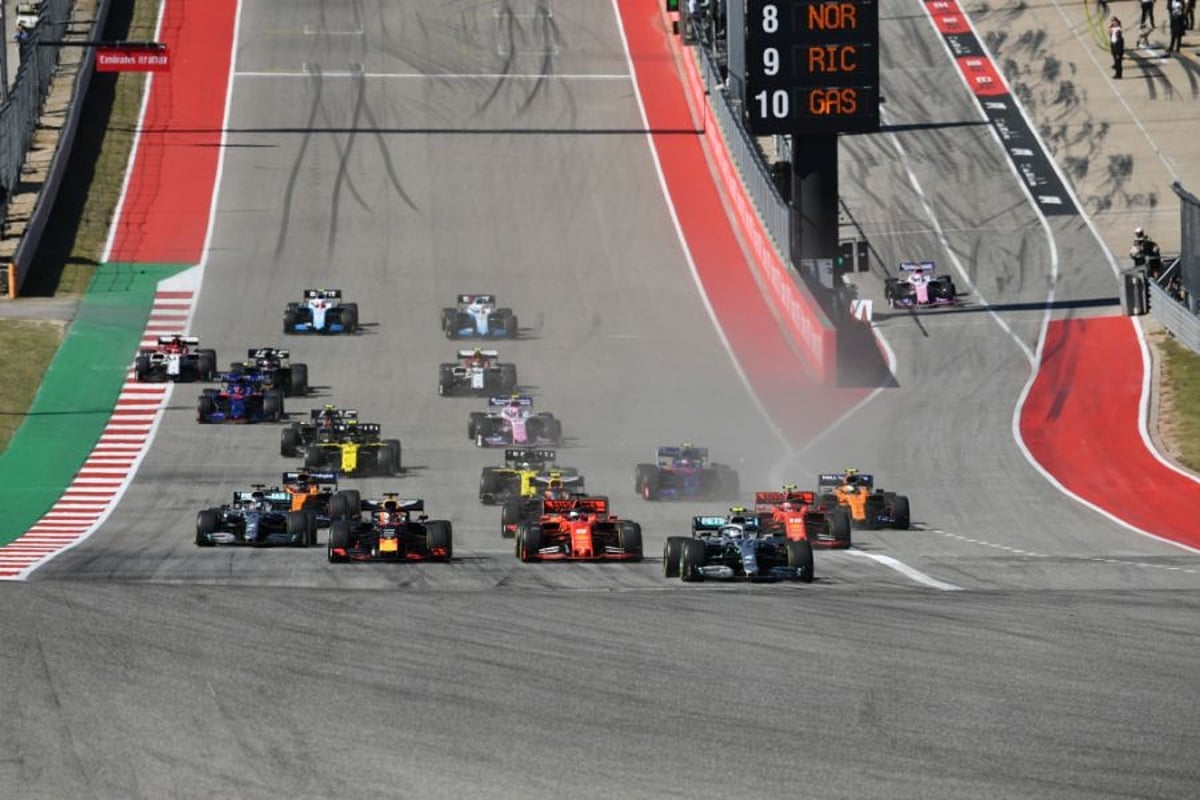Latest News

Latest F1 News
Lewis Hamilton 'ABSENT' as Ferrari conduct major test
- 7 minutes ago

F1 Social
F1 fans FUME as £3,400 Lewis Hamilton merch drops
- 1 hour ago

Red Bull
'Shock and horror' - F1 legend stunned by Horner sacking
- 2 hours ago

Christian Horner
The F1 move that could see Christian Horner work WITH Toto Wolff
- 3 hours ago

F1 Today
F1 News Today: Shock Aston Martin exit to open door for Russell as Wolff confirms driver transfer talks
- Today 15:56

Red Bull
F1 star says Max Verstappen conflict inevitable in tricky Red Bull environment
- Today 13:55
Most read

500.000+ views
FIA issue Lando Norris disqualification verdict at Austrian Grand Prix
- 29 june

250.000+ views
F1 News Today: Verstappen Red Bull era ENDS as rivals announce major contract for star driver
- 13 july

250.000+ views
F1 News Today: Austrian Grand Prix race result confirmed as FIA issue Lando Norris disqualification verdict
- 1 july

200.000+ views
Toto Wolff takes over Christian Horner F1 role after Red Bull exit
- 12 july

200.000+ views
Lewis Hamilton disqualification proves McLaren are real deal at Austrian Grand Prix
- 1 july

150.000+ views
F1 2025 Standings: Lewis Hamilton gets Ferrari boost as team promoted THREE places after Silverstone heroics
- 7 july

























 Grand Prix of Australia 2025
Grand Prix of Australia 2025  Grand Prix of China 2025
Grand Prix of China 2025  Grand Prix of Japan 2025
Grand Prix of Japan 2025  Grand Prix of Bahrain 2025
Grand Prix of Bahrain 2025  Saudi Arabian Grand Prix 2025
Saudi Arabian Grand Prix 2025  Grand Prix De Monaco 2025
Grand Prix De Monaco 2025  Gran Premio de España 2025
Gran Premio de España 2025  Grand Prix du Canada 2025
Grand Prix du Canada 2025  Grand Prix of Austria 2025
Grand Prix of Austria 2025  Grand Prix of Belgium 2025
Grand Prix of Belgium 2025  Grand Prix of Hungary 2025
Grand Prix of Hungary 2025  Grand Prix of Azerbaijan 2025
Grand Prix of Azerbaijan 2025  Grand Prix of Singapore 2025
Grand Prix of Singapore 2025  Gran Premio de la Ciudad de Mexico 2025
Gran Premio de la Ciudad de Mexico 2025  Grande Prêmio de São Paulo 2025
Grande Prêmio de São Paulo 2025  Qatar Grand Prix 2025
Qatar Grand Prix 2025  Grand Prix of Abu Dhabi 2025
Grand Prix of Abu Dhabi 2025 